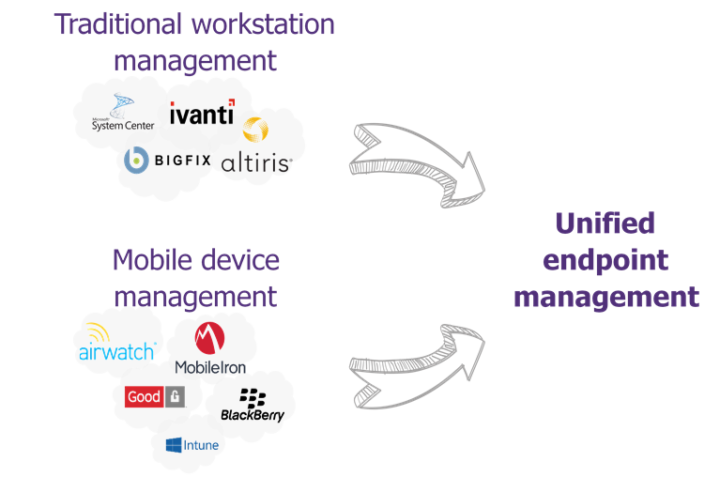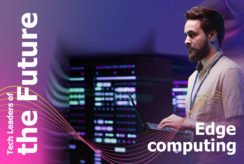Now is the time to set the foundations for the future workplace. Over the past few months, IT departments across organisations have felt the strain of the pandemic, having to work overtime to keep their users working effectively from afar. Life will continue to be abnormal and unpredictable for some time, so organisations need to equip themselves to support the unpredictable.
This is the turning point for many organisations, an opportunity to reinvent their ways of working and turn to modern practices providing users with flexible, user friendly solutions – this is where modern management comes in.
We have seen end point management evolve from the traditional desktop management systems that support fixed desk working to the more versatile mobile device management systems that allow data to be accessed from outside of the office through mobile devices. Modern management combines these two systems in a device agnostic approach, introducing a new operating model that empowers organisations to improve the employee experience, reduce operational costs, and easily implement a device strategy. Whether your organisation is looking to optimise costs for operational efficiency, or to improve your digital workplace offering, a modern management approach will help you achieve these goals.
What exactly is modern management?
Modern management is a combination of modern practices and tools that are deployed to create an easy and flexible device management ecosystem. It requires the right device management tool, able to enforce group policies irrespective of the type of device. Having an effective operating model and supporting processes is also key to a successful modern management set-up. As this approach relies on continuous delivery, a BAU change management capability is required to maximise the benefits of the evergreen (always up to date) technology. The end result is a user-centric model with a simplified IT workload, providing more agility in operations for your tech teams and improving time to market to your user-base.
Choosing a modern management approach enables organisations to be more efficient and secure.
- Evergreen: seamless continuous delivery tools that are always up to date
- Modern security: conditional access policies on all devices specified by your organisation
- APIs, analytics, prediction: unify the workloads of device management and ITSM
- Out-of-the-box experience: deploy Windows 10 devices with no image (MDM settings only)
We have all experienced first-hand the cost of not being prepared. It is time to transition to a modern workplace, ensuring users can access information and applications anytime, anywhere and on any device to reduce dependencies on physical workspaces. Modern management will increase flexibility and help you overcome future uncertainty.
Last piece of advice
If you are considering embarking on a modern management journey, a good place to start is with a proof of concept (PoC). Configuring a modern management solution and enrolling new devices on it will allow you to identify some of the business requirements and use cases that would accompany a full deployment. Tracking KPIs such as support tickets, time to market, cost, etc. throughout the PoC will provide you with the information you need for a future business case.




